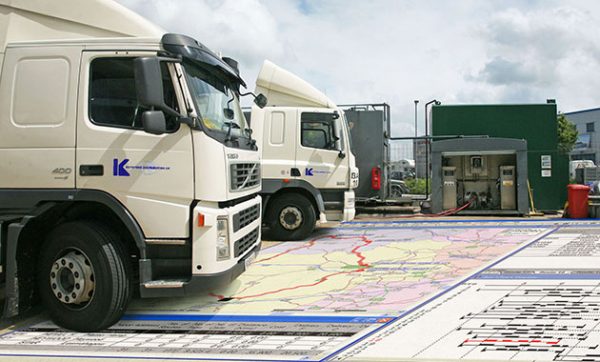Routing and scheduling software from Paragon Software Systems is being used in important research into reducing the carbon footprint of the UK Quick Service Restaurant (QSR) supply chain.
Paragon customer Keystone Distribution UK, is sponsoring the project being led by University of Southampton post-graduate researcher Anthony Velazquez. His work will involve researching the best alternative fuels and vehicle technologies for different areas and applications. Paragon’s routing and scheduling software will be used to model the feasibility of these alternatives to diesel to help achieve UK and EU targets for reducing carbon emissions from heavy goods vehicles.
“Keystone is sponsoring ground breaking work that will help shape the future of the UK Quick Service Restaurant supply chain. We began work in June 2011 and we are at the point where we can begin modelling how the adoption of alternative fuels will impact logistics operations, taking into account the availability of fuel stations for bio methane and hydrogen. This will also help us to appreciate the effect of making detours to charging stations when considering hybrid vehicles,” says Anthony Velazquez.
“The European Union is aiming to achieve a series of climate and energy targets by 2020 that include a reduction in greenhouse gas emissions of at least 20% below 1990 levels, a requirement that 20% of EU energy consumption should come from renewable resources, and a 20% reduction in primary energy use. The EU has set a goal of reducing greenhouse gas emissions to 80 to 95% below 1990 levels by 2050, which implies that key areas of the transportation sector need to cut their carbon output, particularly freight and goods,” he adds.
By working closely with Keystone, Anthony Velazquez has concluded that Paragon is the best software to help him to create the transport models that will help guide decisions about the choice of fuel, vehicle and drive train technology for different QSR logistics applications.
“It is clear to me that Paragon’s routing and scheduling software is the de facto transport planning system for this market. It will help show how each low carbon technology will work in different scenarios. For example, the software will calculate how many extra miles will be added to trips for refuelling with biofuel; the additional mileage can be set against the required reductions in emissions. This research will provide a clearer picture of how the various logistics companies can meet their commitment to reducing carbon emissions under very stringent rules from the UK government and EU authorities,” he says.


